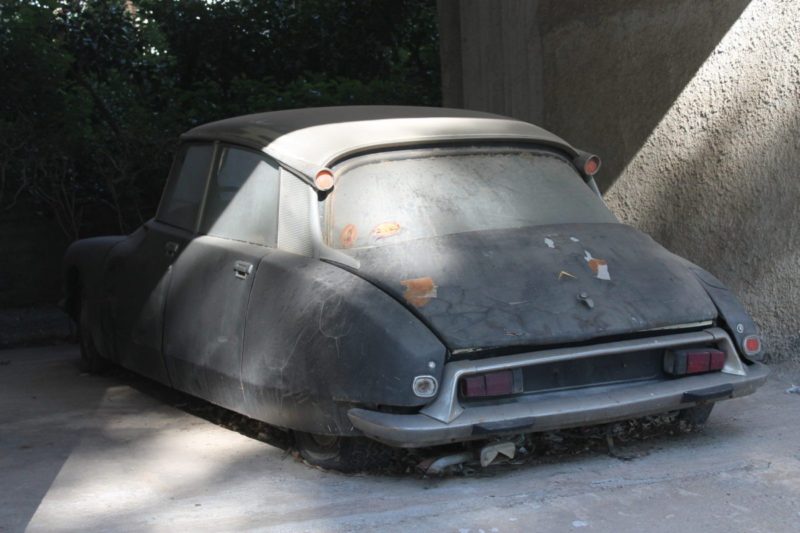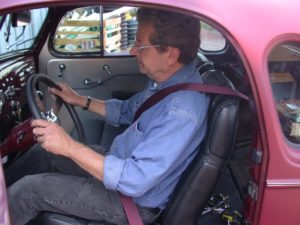If you meet someone who wants to buy an old-timer and say that Dutch classic traders and auctioneers are all heartless neo-liberal people who want to get rich over the backs of real enthusiasts? Then take a breath and ask, "Why?"
The auctions and foreign providers
Briefly: Estimated revenue added auctions are far too high and in the various foreign countries there are classics that are considerably cheaper there than here. We go one more time for the basic explanation so that we have well-informed classic enthusiasts, the matter is once again on the right line if you want to buy an old-timer somewhere.
First the auctions
The estimated yields on auctions mentioned are - with some exceptions - on the high side of the relevant price range. In terms of sales, that is psychology 1.0. The bid for which the classic goes away is usually lower than the estimated yield. For example, the person who wants to buy a classic car at least has the feeling that he has not bought his purchase too expensive. Also cunning: there is talk of the 'winning' bid. That feels so good too. But it is simply the highest price that you, as the bidder, have made the beautiful. Winning sounds more exciting than 'bought for the highest price'. That's okay, because it's all part of the game. Keep in mind that there are always additional costs to buy a classic car at an auction. These are now crystal clear on the sites. But if you don't pick up that info, that's annoying.
Maybe also interesting: Classic transport, a profession in its own right
Collect or bring?
If the oldtimer that you want to buy is also abroad, on Catawiki are Italy and Spain the most beautiful classics, then there is also that transport thingy. Think of amounts up to around 1.000 euros when the loot has to be collected in southern France or Italy. If you are not in a hurry, you can save some money. There are a number of Dutch car transport companies that collect and transport throughout Europe. And they do not always have a return cargo. In this way a pick-up point can be called at when you pass by. That makes a difference. The carrier has unexpected return cargo and can often use a friendlier rate. It doesn't hurt to mention that in any case.
But it always costs money
But to the left or to the right: a classic dealer who is going to buy an old-timer must also pay those transport costs for his own trade. And his earnings model naturally fits in with the fact that he also passes on those costs, plus usually checking and possibly arranging his purchase for sale. And somewhere in that process, he also wants to make a little profit. Because even classic car dealers simply have to pay for their groceries.
The best thing of course is to pick up such a new purchase yourself
This can be the best test of the purchase if the first journey is made on its own. The administrative handling and arranging of the insurance on chassis number of the oldtimer you are going to buy, and the name of the new owner is a standard administrative procedure. Keep in mind that getting a classic car and bringing it home is usually quite exciting when you are going on long motorway journeys with an unknown car with an unknown maintenance history. On the other hand: An acquaintance just took a week off to take his R4 bought in Spain home.
Tandem welder
A good second choice is to hang a sturdy tandem axle behind a car with sufficient traction. You can drive 110 or 130 kilometers per hour on French motorways. So that makes good progress. In Switzerland, 80 kilometers per hour is 'the Max'. And certainly don't drive faster there. The Swiss fines for speeding tickets are huge. A dynamic motorcyclist friend made it very tight: He was assessed for 5.000 Swiss francs and he had lost his motorcycle. Oh yes: do lash the new purchase seriously. We once saw someone lose their classic at Velperbroek. Sad.
Picking up an old-timer that you are going to buy costs between two days and a week. During that time you have to refuel, eat and sleep. That costs money, but the experience is priceless.
Own classics first
For people with a tighter timetable who want to be able to play with certainty, it is therefore most convenient to buy from a Dutch classic specialist. Many foreigners do that too. Because classics from the Netherlands are apparently known for their realistic to good price-quality ratio.









"For example, the person who wants to buy a classic car has the feeling that he has not sold his purchase too dearly."
I assume it should have been bought there, Dolf?
Furthermore, a very clear story.
Tip: I bought a Fiat 500 in Naples, had it overhauled there and took the car train from Northern Italy to Cologne. Saved 1000 uncertain km's.
Regards, Ric
Hi Ric, I buy too expensive and sell too little. That is why I never entered the trade. But your approach is great!